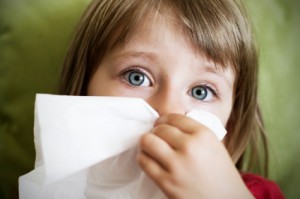Children’s Health

Fast Facts – Breast Feeding Equals Smarter Babies
Babies who are breastfed for four months or more perform better on intelligence tests at age 21, a study has found.
Paediatric registrar Ryan Eisemann analysed data from more than 1600 people born in the 1980s whose mothers were part of the Mater-University of Queensland Study of Pregnancy.
He found an association between those who were breastfed for at least four months and improved intelligence in early adulthood, even after adjusting for birthweight, prematurity, family socio-economic status and the mother's education and IQ levels.

Research Insight – Breast Feeding May Up IQ for Toddlers and Grade-Schoolers
Next time you wonder how your friends or colleagues got so darned smart, consider this: It may have something to do with how long they were breast-fed.
A new study from Harvard University shows that children who are breast-fed longer have higher IQs than formula-fed kids, and the longer and more exclusively kids are given breast milk, the better.
Researchers are careful to say it's an association, not causation, but each month the child was breast-fed exclusively in the first six months, he or she gained four-fifths of a point in verbal IQ by age 7.

Grains in Children Linked to Asthma
The percentage of people with asthma has increased steadily over the last half of the 20th century: a recent study showed that 35% of 12- to 14-year-olds in the United Kingdom experience allergy symptoms annually.
This increase may be linked to environmental factors, including eating certain foods. Eating dietary cereals, such as such as wheat, rye, oats, and barley, can cause an allergic reaction to grass pollen.
Providing cereals in the diets of infants, whose digestive systems are not fully mature, may increase the likelihood of grass pollen allergies later in life.

Asthma Drug Stunts Children's Growth for Life
A popular inhaled drug used to treat asthma can stunt a child’s growth permanently.
Inhaled steroids are known to slow growth in children during the first years of use, but the long-term impact of inhaled steroids on height was unknown until now.
It was previously thought that children whose growth was stunted by the drug would "catch up" to their peers later in life.
They have now discovered that the children who were given budesonide were still an average of 2.5cm shorter than the other kids and this was a permanent effect.

Nappy Rash
Nappy rash is a term used for inflammation of the skin that occurs in the nappy area. Almost all babies develop it at some stage when they are in nappies.
It tends to be due to a combination of factors, but the most important one is related to the wearing of nappies, as the name suggests.

Bedwetting
"Oh no, not again!" Soggy sheets and pajamas — and an embarrassed child — are a familiar scene in many homes.
But don't despair. Bed-wetting isn't a sign of toilet training gone bad. It's often a normal part of development.

Paracetamol Increases Asthma Risk in Children
Giving children paracetamol during their first year of life can increase their risk of developing asthma according to new research published in Lancet.
Currently over 2.2 million Australians have asthma and incidence has been increasing over the last 50 years but we don’t exactly know why.

Tips for Getting Kids to Take Their Supplements
Find it impossible to give your children supplements? You are not alone.
Getting kids to take their prescribed supplements can be a very stressful activity for both parents and children.
Read on for some tried and true tips to help overcome the problem of running away, clenched teeth, and spitting back out what is put into their mouths!

Dangerous Ingredients in Your Child’s Multi?
A Children's multivitamin is often used as insurance against fussy eating or for when illness strikes.
Unfortunately, it seems the market is flooded with kids supplements that contain potentially dangerous ingredients as well as heaps of sugar.
So let's take a look at Kids Multivitamin offerings.

Generation Fat – Why Our Kids Won’t Outlive Us
Australia now has the highest rates of childhood obesity in the developed world, with 25% of our children currently overweight or obese.
Childhood obesity is a ticking “time bomb” which could result in the first drop in life expectancy for the first time in two centuries.
Emed investigates why our kids are getting so fat and ways to prevent this epidemic.

Give Your Child the Best Start to Life
We all want the best for our children, and this includes helping them to develop and grow both physically and mentally.
With 1 in 16 school- aged children now being diagnosed with attention deficit hyperactivity disorder (ADHD), and 1 in 91 being diagnosed with autism, we must begin asking “Is there something more that we can do?”
Even without a diagnosis, many children struggle with various aspects of cognitive function and learning, including memory, judgement, problem solving, and language development.
Poor learning or behaviour needn’t be an inevitable part of life. With some simple strategies, you can help your children achieve their full potential.

Strengthening Your Child’s Immune System
As every parent knows, having a sick child is certainly not fun and on top of that, it can impact on the health and wellbeing of the whole family.
Whether it’s due to sleepless nights, sickness spreading through the whole family, or needing time off school or work, sickness can take its toll.
It is vital for children’s immune systems to be in tip top shape to deal with whatever bugs are thrown their way, be it bacteria, viruses or allergens.
So if your kids are getting sick with regular colds and flus, or are susceptible to eczema or wheezing or sneezing, then make it a priority to boost up their immunity and bring them back into balance.

Research Insight – Childhood Antibiotic Linked to Inflammatory Bowel Disease
Overuse of antibiotics may help explain why more children are being diagnosed with Inflammatory Bowel Disease (IBD).
In a new study, getting antibiotics, especially very early in childhood, was linked to a raised risk for IBD.
IBD is a catch-all term for a group of serious intestinal conditions that include Crohn's disease and Ulcerative Colitis.
Children who received antibiotics before their first birthday had a 550% increased risk of developing inflammatory bowel disease (IBD) compared with those who were never exposed, according to a retrospective cohort study of more than 1 million children. And the more antibiotics prescribed during childhood and adolescence, the higher the risk.
The study suggests that reduction in childhood antibiotic use may have the potential to help curb the rising incidence of childhood IBD.

Caring For Your Kid’s Brains
Children are amazing little beings! Think about all that they achieve on a day to day basis and the development they undergo from the time they are born.
Childhood achievements and developments largely contribute to their lifetime potential so it all begins now! We all hope for the best in our children, so they can be the happiest and healthiest possible.
Is your child living to their full potential? Emed explains ways in which you can care for and support your child’s growing brain to help maximise their development.

Research Insight – Vitamin D Critical in Sick Children
Children with long-standing illnesses who are deficient in vitamin D are more likely to be ill for longer and experience more severe symptoms, according to the findings of two studies recently published in Pediatrics.
The first study screened 511 children admitted to the paediatric intensive care unit (PICU) over a period of 12 months. Of these children, 40% were found to be deficient in vitamin D.
In the second study, data from 326 ill children and teenagers was analysed. Almost 70% of the children admitted to the PICU in this group were vitamin D deficient.
The study also revealed that severity of vitamin D deficiency was independently associated with longer PICU stays and increased severity of illness.

Vitamin D Deficiency Identified As A Cause of Childhood Food Allergies
Does your child have a food allergy? If not, the child of someone you know is sure to.
The incidence of childhood food allergies has risen at an alarming rate over the last 20 years to the point that 1 in 10 Australian children under the age of 12 are now believed to be affected by single or multiple food allergies.
Recent research has confirmed that low vitamin D levels are implicated in the development of food allergies in children, especially Australian children, suggesting that vitamin D may be a safe and beneficial protective factor for infant and childhood food allergies.

Anxiety in Children: How You Can Help
Maybe you have a super-shy littlie, a worrier, or a child who is scared to try new things.
Maybe your child has developed a fear of the dark or being separated from you.
Children can fear situations or objects that adults don’t find threatening.
Anxiety and stress can be real problems for kids – even for babies and toddlers. Take a child’s fears seriously and help them manage and overcome anxiety and stress.

Summer vs Winter Babies – Does the Season of Birth Determine Your Child’s Behaviour?
Forget about charting your child’s star sign, new studies have found that summer and winter babies exhibit different behavioural characteristics.
Recent research suggests that babies born in the summer are more likely to struggle with sharing, concentrating, making friends and helping than those born during winter.
So we thought to look a bit deeper into why this is and help your baby develop into the best they can be!





